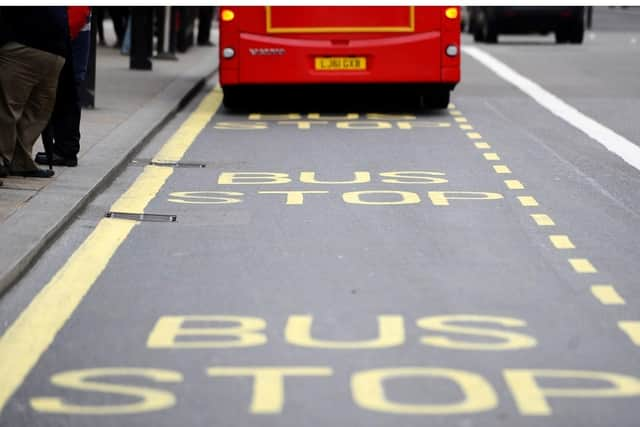Doncaster buses produce fewer emissions – as passenger journeys tumble
and live on Freeview channel 276
The Local Government Association said buses can play a "huge role in reducing carbon and other harmful emissions".
Bus emissions data is measured by the equivalent amount of oil the journeys would have produced.
Advertisement
Hide AdAdvertisement
Hide AdAnd Department for Energy Security and Net Zero figures show buses in Doncaster produced 3.7 thousand tonnes of oil equivalent (ktoe) in 2021.


In 2011, a decade earlier, buses in the area emitted 7.1 ktoe.
The fall in emissions follows a significant reduction in people using buses.
Passengers in South Yorkshire completed 53 million journeys in the year to March 2022, the latest Department for Transport figures show. But in 2011-12, 112 million journeys were made – a decrease of 53 per cent.
Advertisement
Hide AdAdvertisement
Hide AdAcross the UK, buses emitted 815 ktoe in 2021 – substantially down from the 1,372 ktoe produced a decade earlier.
Passenger journeys are not the only factor when considering the total emissions buses produce.
A spokesperson for the Local Government Association said: "Buses can play a huge role in reducing carbon and other harmful emissions as well as congestion, with a fully loaded double-decker bus being able to take 75 cars off the road.
"We need to reverse the decline in bus services and passenger numbers to help meet the country’s net-zero targets and keep our roads flowing and people and business connected. To help achieve this, the Government should fully commit to delivering its National Bus Strategy."
Advertisement
Hide AdAdvertisement
Hide AdThe figures also showed an uptick in emissions from all vehicles on the UK's roads – more than 35 million tonnes of oil equivalent was produced across the country in 2021, up from 32 million in 2020 but still below every other year since records began in 2005.
In Doncaster, all vehicles emitted 260 ktoe in 2021. Personal transport, which includes all cars, buses and motorcycles, accounted for 47 per cent of this, while freight transport accounted for 53 per cent.
Petrol cars produced 63 ktoe, and diesel cars 54 ktoe.
The Department for Transport said directly linking reduced emissions with passenger numbers is "incorrect".
A spokesperson added: "Since February 2020, we have awarded over £300 million of dedicated funding for UK-built zero-emission buses, and are on track to reach our commitment of supporting the introduction of 4,000 new zero-emission buses by the end of this parliament."
Comment Guidelines
National World encourages reader discussion on our stories. User feedback, insights and back-and-forth exchanges add a rich layer of context to reporting. Please review our Community Guidelines before commenting.